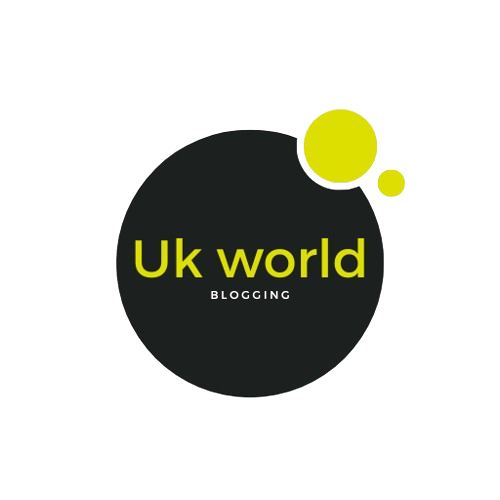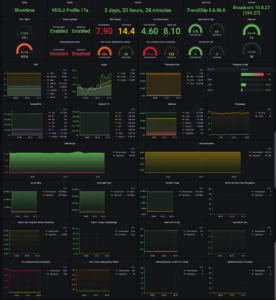In today’s rapidly evolving world, the fusion of science and innovation is more critical than ever. As groundbreaking discoveries emerge in biological technology, the need for expert guidance becomes apparent. Enter the Biological Technology Consultant—a vital player at this exciting intersection of research and real-world application. These professionals possess a unique blend of scientific knowledge and innovative thinking that drives advancements across various sectors. Their insights not only help organizations navigate complex challenges but also foster an environment ripe for creativity and progress. Let’s explore how these consultants are shaping the future of biotechnology while bridging gaps between ideas and implementation.
The Importance of Bridging Science and Innovation
The intersection of science and innovation is where groundbreaking discoveries come to life. Bridging these two realms paves the way for advancements that can transform industries.
Scientific research provides a solid foundation, yet without innovative applications, its potential remains untapped. This synergy fuels progress in healthcare, agriculture, and environmental sustainability.
When scientists collaborate with innovators, they create solutions that address real-world problems. This collaboration fosters creativity and pushes boundaries beyond traditional methods.
Moreover, as technology evolves rapidly, keeping pace becomes essential. The integration of scientific principles with cutting-edge techniques allows businesses to remain competitive and relevant.
Emphasizing this bridge not only enhances product development but also accelerates time-to-market for new solutions. It leads to improved outcomes across various sectors while ensuring society benefits from scientific advancements.
What Does a Biological Technology Consultant Do?
A Biological Technology Consultant plays a pivotal role in advancing biotechnological innovations. They work at the crossroads of science and business, translating complex scientific concepts into practical applications.
Consultants assess existing technologies and identify areas for improvement. By conducting thorough research, they help organizations understand market trends and regulatory requirements.
They often collaborate with scientists, engineers, and executives to develop strategies that align with both technical capabilities and business goals. Their insights can guide product development from concept to commercialization.
Additionally, these consultants provide training sessions to enhance team knowledge on new techniques or regulations. Their expertise ensures that companies stay competitive in a rapidly evolving field.
Through networking opportunities, consultants foster connections between stakeholders in academia and industry. This collaboration accelerates innovation while ensuring ethical practices are upheld within the biotechnology sector.
Skills and Qualifications Needed to be a Successful Consultant
To excel as a Biological Technology Consultant, one must possess a blend of scientific knowledge and practical skills. A strong foundation in biology, biotechnology, or related fields is essential. Advanced degrees often boost credibility and expertise.
Analytical thinking is critical. Consultants need to assess complex data and translate it into actionable insights for clients. Problem-solving abilities enable them to navigate the challenges that arise in innovative projects.
Communication skills are equally important. The ability to articulate ideas clearly helps bridge the gap between technical teams and non-experts alike. Building rapport with clients fosters trust and collaboration.
Staying updated on industry trends gives consultants an edge. Continuous learning through workshops or certifications keeps their knowledge fresh in this rapidly evolving sector. With these qualifications, they can effectively guide organizations toward successful biotechnology innovations.
Industries and Clients Served by Biological Technology Consultants
Biological technology consultants play a vital role across various sectors. Their expertise is essential in pharmaceuticals, guiding drug development processes from inception to market launch.
In healthcare, these consultants aid in the integration of biotechnology innovations into clinical practices. They help improve patient outcomes through advanced therapies and diagnostics.
Agriculture also benefits significantly. Consultants assist companies in developing genetically modified organisms that enhance crop resilience and yield.
Environmental firms rely on their knowledge for bioremediation projects, addressing pollution challenges effectively.
Startups frequently seek guidance on navigating regulatory hurdles, while established corporations look for insights into emerging technologies that can drive growth.
From governmental agencies to nonprofit organizations focused on health initiatives, the client base is diverse and expansive. This breadth of industry involvement showcases the versatile impact biological technology consultants have in shaping modern science and innovation.
Benefits of Hiring a Biological Technology Consultant
Hiring a biological technology consultant can transform how organizations approach complex scientific challenges. These experts bring specialized knowledge that bridges the gap between science and practical application.
One of the key benefits is their ability to provide tailored solutions. They assess specific needs and develop strategies that align with organizational goals. This personalized approach saves time and resources.
Consultants also stay updated on industry trends, ensuring clients remain competitive. Their insights into emerging technologies can lead to innovative practices that enhance productivity.
Moreover, these professionals often have extensive networks within the biotech community. This allows for valuable connections, facilitating collaborations with research institutions or potential partners.
Their experience in regulatory compliance helps navigate the intricate landscape of biotechnology laws and standards, reducing risks associated with new projects or products.
Future Outlook for the Field of Biological Technology Consulting
The future of biological technology consulting is brimming with potential. Rapid advancements in biotechnology and life sciences create a growing need for expert guidance.
As industries evolve, consultants will play a vital role in navigating complex regulations. They’ll help companies innovate while ensuring compliance with ever-changing standards.
Emerging fields like synthetic biology and personalized medicine are set to expand. This presents new challenges that require specialized knowledge. Consultants adept in these areas will be invaluable assets.
With an increased focus on sustainability and ethical practices, the demand for skilled consultants will rise. Organizations seek experts who can align innovative solutions with responsible stewardship of resources.
Moreover, interdisciplinary collaboration will become essential. Biological technology consultants must integrate insights from genomics, data analysis, and engineering to drive impactful change across sectors.
Conclusion: Leveraging Expertise for Better Science and Innovation
The role of a Biological Technology Consultant is vital in today’s fast-paced scientific landscape. They serve as the crucial link between groundbreaking research and practical application. With an ever-growing need for innovation, these experts help organizations navigate complex challenges.
By leveraging their extensive knowledge, they provide insights that drive advancements in various fields. This not only enhances operational efficiency but also fosters a culture of continuous improvement within organizations.
As industries become more interconnected, the demand for Biological Technology Consultants will likely increase. Their unique skill set positions them perfectly to influence future innovations and contribute significantly to scientific progress.
Embracing this expertise can lead to transformative outcomes in research and development, ultimately benefiting society as a whole. The intersection of science and innovation holds immense potential, and with the right guidance from consultants, we can unlock new possibilities for advancement.




